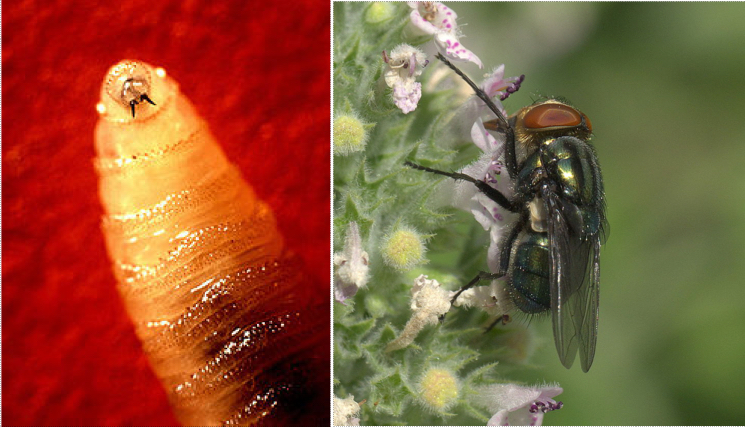Screwworm Scourge Spreads to Six Additional Florida Keys
Following the first announcement on Oct. 3, 2016 of the confirmation of New World screwworms in Big Pine Key, Florida, the United States Department of Agriculture and Florida Department of Agriculture and Consumer Services announced this week that the screwworm has also been detected on the keys listed below, which are all west of Big Pine and No Name keys and in close proximity. Additional detections are not unexpected, as enhanced surveillance efforts are underway.
- Big Torch Key: adult screwworm flies detected.
- Middle Torch Key: adult screwworm flies detected.
- Little Torch Key: adult screwworm flies detected.
- Cudjoe: adult screwworm flies detected.
- Ramrod: adult screwworm flies detected.
- Summerland: adult screwworm flies detected and screwworm-infested Key deer observed.
New World screwworms are fly larvae (maggots) that can infest livestock and other warm-blooded animals, including, in rare cases, people. They most often enter an animal through an open wound and feed on the animal’s living flesh.
This is the first local infestation in the United States in more than 30 years. On Oct. 3, 2016, Florida Commissioner of Agriculture Adam H. Putnam declared an agricultural state of emergency in Monroe County, Florida, which can be accessed here.
Eradication efforts include:
- An Animal Health Check Point at Mile Marker 106 in Key Largo. This animal health checkpoint is a crucial part of ensuring animal health and protecting Florida from the spread of this pest. All animals are briefly checked to ensure they do not have screwworm. Early detection of screwworms can be successfully treated in pets and livestock. Eight-hundred-eighty-three animals have been checked to date, and none has been positive for screwworm;
- The release of sterile flies, a scientifically proven method to achieve screwworm eradication, began on Tuesday, Oct. 11;
- The USDA continues to increase production and evaluate additional sites for release;
- Enhanced surveillance to determine the scope of the screwworm infestation; and
- Extensive public outreach in order to engage the public in early detection of the screwworm.
Residents who have warm-blooded animals (pets, livestock, etc.) should watch their animals carefully and seek veterinary care for open wounds, then report any potential cases to 1-800-HELP-FLA (1-800-435-7352) or non-Florida residents should call (850) 410-3800.
To report a suspected case of screwworm in the Key deer, call (305) 470-6863, option 7.
For more information on the New World screwworm, visit FreshFromFlorida.com/screwworm.



Excellent and timely report! Isn’t it about time that the guvmint effected a checkpoint below Summerland Key?
Dickford
The U.S. Fish & Wildlife staff at the National Key Deer Refuge are responsible for insuring proper habitat for the deer. Why wasn’t this noticed sooner? Was it that they have been spending too much time trying to eliminate feral cats?